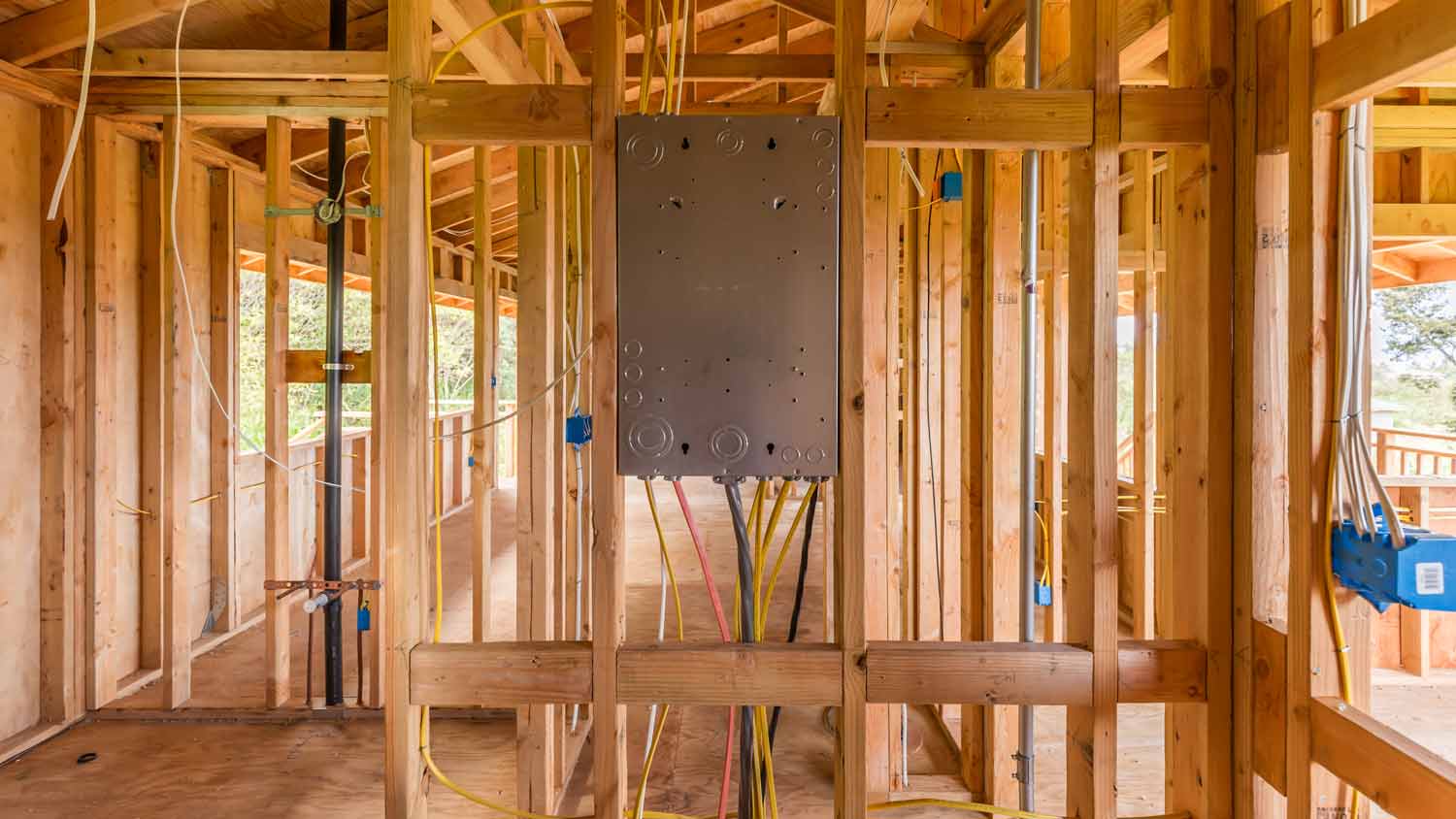Can I Do My Own Home Electrical Wiring?
Don’t be shocked by the results of your electrical project
.jpg?impolicy=leadImage)
.jpg?impolicy=leadImage)
Don’t DIY rewiring a house, adding new breakers, upgrading your electrical service, or running outdoor cables.
Any significant change to electrical wiring will require a permit and likely an electrical inspection from a professional electrician.
Wiring must meet strict codes so that it doesn't become a fire or shock hazard, so large projects should be handled by a trained electrician.
Minor electrical projects that involve few changes to the wiring can be DIYable if you know what you’re doing and can meet local code.
Do you have your eye on a new fixture, a bit of wiring work, or an electrical upgrade? If so, you may consider whether you can do your own home electrical wiring.
However, most significant wiring changes involve serious safety hazards, not to mention must adhere to National Electrical Code (NEC) requirements. That’s why it’s best to hire a professional electrician for home wiring changes or additions. Let’s go over the requirements and differences between home wiring tasks.
Modifying or expanding your home’s electrical system can be extremely hazardous, posing risks of electrical shock or fire. To ensure safety and compliance with regulations, it is crucial to hire a licensed professional for any electrical work.
Is It Legal to Do My Own Home Electrical Wiring?
Laws vary by state, but it’s often not legal for inexperienced homeowners to complete significant electrical work without first meeting several requirements. Here are some of the legal requirements of home electrical work:
You’ll need to be the legal owner of the house to complete electrical work, and may have to prove it with a deed search.
You will need to get an electrical permit for the work. While permits may not be required for very small electrical projects, they’re necessary for projects involving changes to your electrical wiring.
The state may require you to get a temporary electrical license. This license involves taking an exam to ensure you understand residential building codes and electrical wiring.
For significant electrical wiring work, you’ll also need to arrange for an electrical inspection.
Hire an Electrician for These Home Wiring Projects

You should hire a local electrician to tackle complex electrical wiring projects. When planning for electrical projects, contact an electrician and schedule an estimate to discuss the details of the home wiring work.
Upgrading the Electrical Service Panel
Upgrading the electrical service in your home requires replacing its electrical panel with a more modern version with higher amperage. This is not a DIY task—you must hire a local electrician to complete the installation due to the complex and hazardous nature of this task.
Rewiring a Room or Whole House
Rewiring refers to pulling out the existing wiring and replacing it with new wiring to fix a problem or properly match the electrical requirements of your receptacles, breakers, or appliances. Electricians must complete this task to meet the strict electrical codes for residential wiring. Plus, they have the tools and experience to do it with minimal impact to your house.
Wiring an Addition or Finished Level
If you’re adding a room or wired building or finishing an attic or basement, call in an electrician to manage the wiring work. Similar to rewiring, electricians can ensure the new wiring meets the necessary codes and won’t overload your system. Electrical pros can also install a subpanel, add a new circuit to your existing electrical panel, or other steps that are beyond the reach of a DIYer.
Adding a Transfer Switch
A transfer switch can switch circuits or the entire home system over to an alternate source of power, like a backup generator. Like most wiring projects involving your electrical service panel, you should leave this job to the experts with the right training.
Running an Outdoor Electrical Cable
Even if you know the type of cable you need to connect to a hot tub, water feature, or shed lighting, it’s best to hire an electrician for this task. They are well-versed in how to protect the cable safely for outdoor use while meeting local electrical codes.
Adding Multiple Outlets or Sockets
Adding an outlet or new light socket can be a DIY project if you have some previous wiring experience. However, if you want to add multiple outlets or sockets throughout the house, it’s much easier to hire an electrician to handle the whole project for you.
Replacing a Burnt Electrical Fixture
Any signs of burning or melting could indicate damaged wiring and past electrical shorts. That’s dangerous territory, requiring both careful inspection and adherence to safety measures. Contact an electrician to figure out exactly what went wrong and how to fix it.
Frequently Asked Questions
The cost to hire an electrician is between $50 and $100 per hour, depending on factors like location and type of electrician. The level of electrician (apprentice vs. master) may have some impact on the costs, but that’s rarely a factor for most common house projects. For some projects, especially larger ones, electricians will charge a flat fee. Short-term or off-hours emergency work will always cost extra.
If wiring in a relatively modern home is damaged due to sudden events like a fire, a tree falling into the house, or a flood, then homeowners insurance is very likely to cover the cost of replacing the wire.
However, if it’s determined that wiring failed or started the fire because of age, neglect, or not meeting current electrical standards, then insurance won’t be covering any replacement. Also, insurance policies may charge more for particularly old kinds of wiring like aluminum wiring or deny applications altogether.

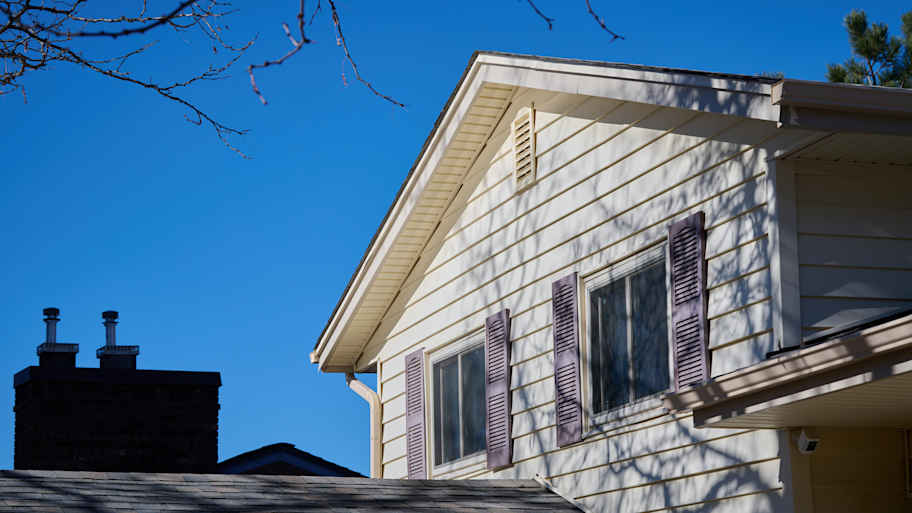
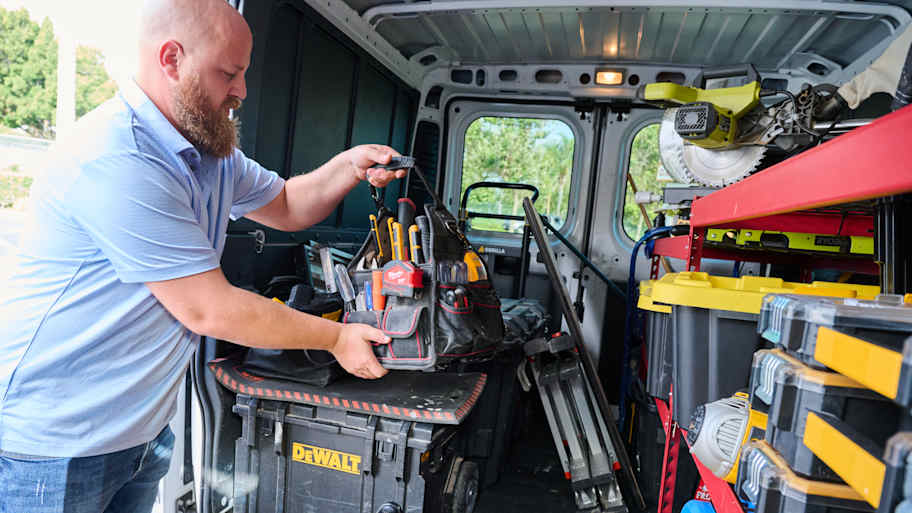
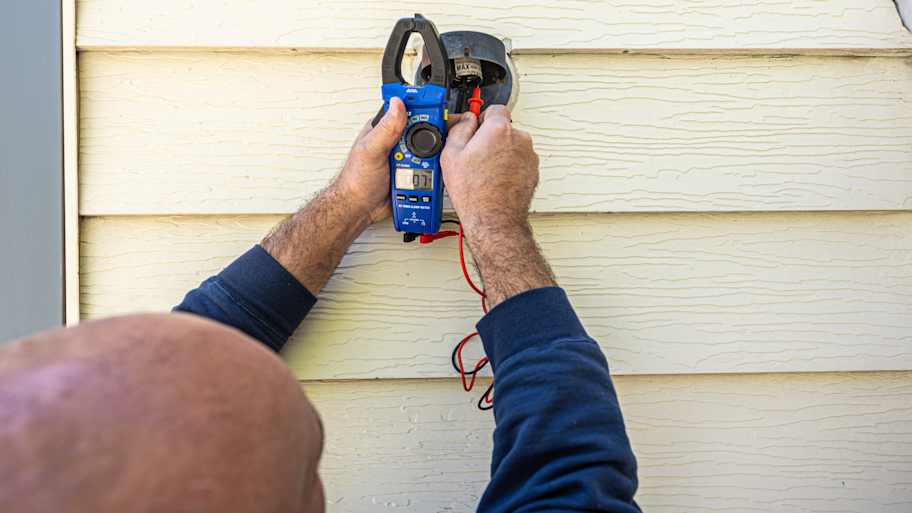
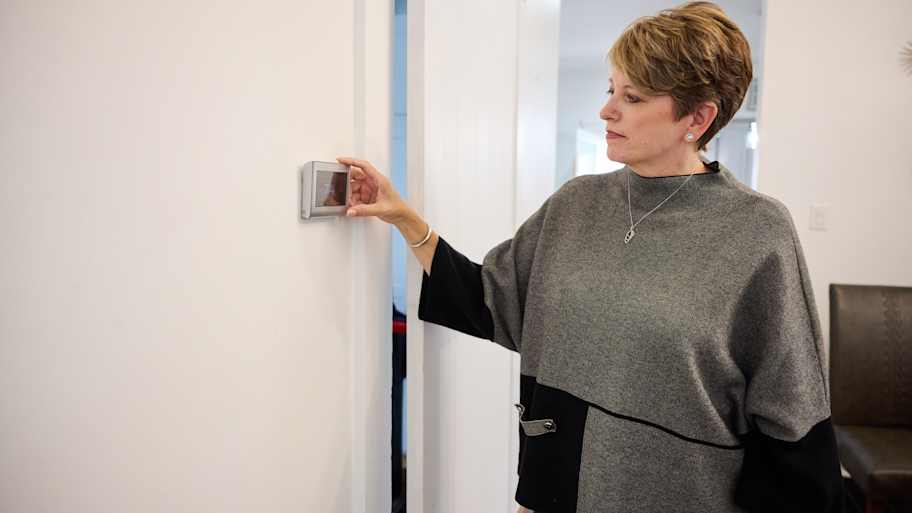
- Home Generator Repair
- Lamp Repair
- Electric Repair
- Generator Installation
- TV Antenna Services
- Emergency Electricians
- Commercial Electricians
- Attic Fan Installation
- Attic Fan Repair
- Exhaust Fan Installation
- Electric Inspectors
- Subcontractors
- Electrical Construction
- EV Charger Installer
- Chandelier Installation
- Doorbell Installation
- Bathroom Fan Installation
- Ring Installers
- Electrical Panel Upgrade



